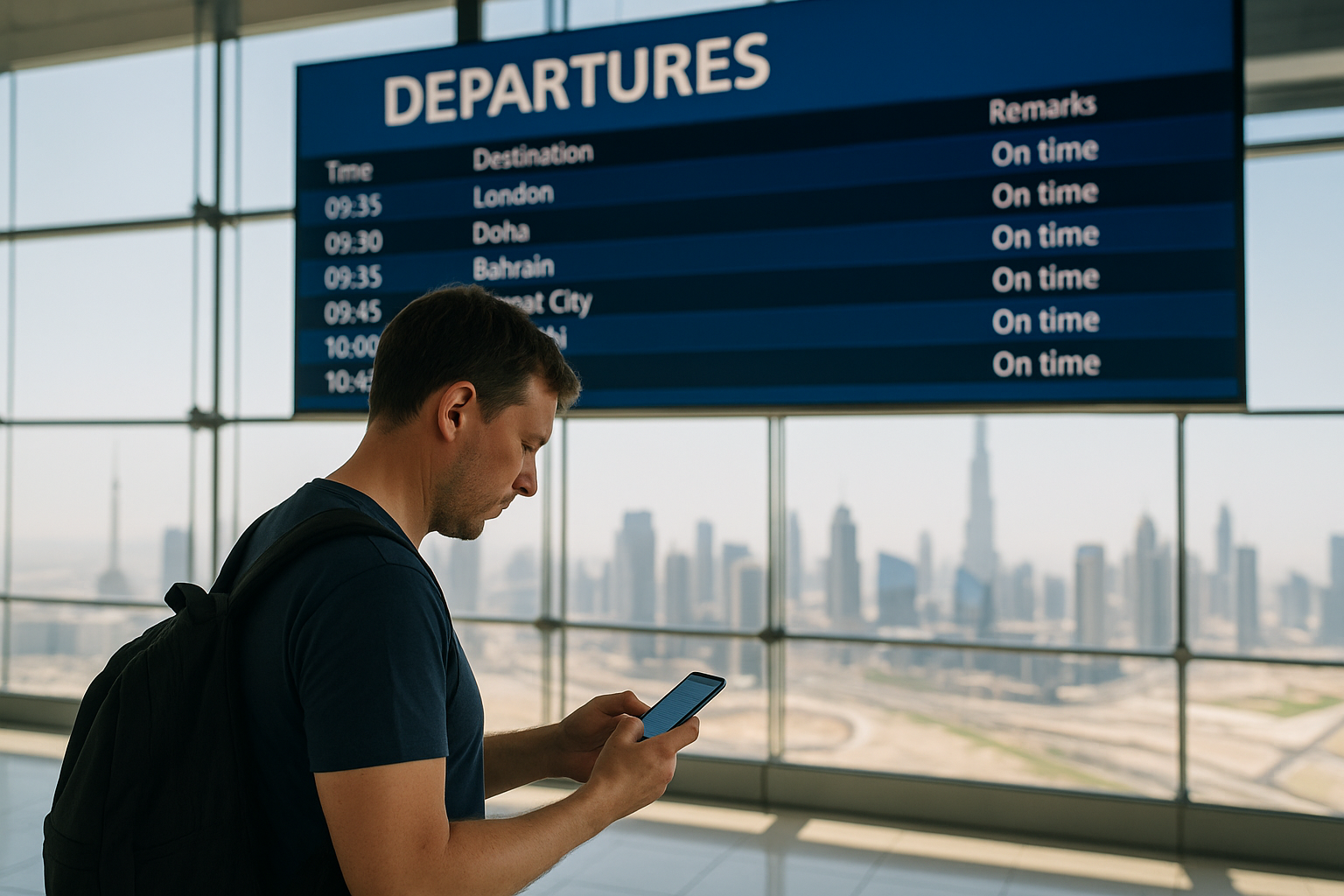British holidaymakers planning trips to Middle Eastern hubs like Dubai, Abu Dhabi, and Doha should take note of the latest travel guidance released by the UK’s Foreign, Commonwealth & Development Office (FCDO). In a July 2025 update, the FCDO has issued refreshed safety and travel recommendations for the United Arab Emirates (UAE) and Qatar, citing ongoing geopolitical uncertainty in the region.
While the recent ceasefire between Israel and Iran announced on June 24, 2025, has momentarily calmed tensions, UK authorities are urging British nationals to remain cautious as the Middle East remains an unpredictable landscape for international travelers.
Regional Tensions Prompt Advisory Updates
The FCDO’s latest guidance follows several months of heightened instability in the Middle East, largely fueled by military escalations between Israel and Iran and the threat of airspace disruptions. These developments have led to intermittent flight cancellations, rerouted air traffic, and airport security alerts, particularly impacting international arrivals and departures at Dubai International Airport (DXB), Abu Dhabi International Airport (AUH), and Hamad International Airport (DOH) in Doha.
Though the UK government has welcomed the ceasefire, it maintains a “stay alert” posture for British citizens traveling to or transiting through the Gulf. The updated guidance encourages travelers to monitor real-time developments and exercise heightened vigilance throughout their stay.
UAE: Travel Safety Measures for British Tourists
Travelers heading to the UAE are advised to follow a set of precautionary measures to ensure their safety:
- Monitor Official Sources: Check for regular updates from the FDCO travel advice portal as well as local news agencies like Emirates News Agency (WAM).
- Check Flight Status Frequently: Confirm with airlines and airport authorities before traveling, as airspace closures or rerouted flights may occur on short notice.
- Stay Connected: Travelers should register their presence with the nearest British embassy and enable local SIM cards for faster communication with authorities in case of emergency.
- Follow Local Laws: The UAE has strict regulations concerning behavior in public, dress codes, and online activity. Tourists are urged to familiarize themselves with Emirati customs to avoid legal issues.
- Respect Friday Gatherings: Fridays are a traditional day for prayer and public gatherings. Tourists should be especially aware of increased security presence and potential for public demonstrations in urban centers.
Qatar: Understanding the Political and Cultural Climate
While Qatar has largely remained stable amid regional unrest, the UK government highlights that political developments in neighboring countries can influence domestic sentiment. Tourists in Doha and surrounding cities should be sensitive to the local political atmosphere.
- Avoid Political Discussions in Public: Public debate around regional politics can be risky. It is best to avoid commenting on sensitive topics, especially in public or on social media.
- Steer Clear of Demonstrations: Protests, even if peaceful, can escalate unexpectedly. Avoiding such gatherings ensures a safer and uninterrupted holiday experience.
- Follow Local Guidance: The Qatari government takes a proactive stance on maintaining national security. British visitors should comply with instructions issued by local police or security services.
According to the Qatari Ministry of Interior, tourists are welcomed with open arms, but must respect national traditions and Islamic values, especially during special observances such as Eid Al-Adha or National Day.
Air Travel: Be Prepared for Delays and Reroutes
Although UAE and Qatari airports are recognized globally for their efficiency, current regional instability may result in sporadic changes to flight paths, especially in response to temporary airspace restrictions. The International Air Transport Association (IATA) has previously flagged the Middle East as a high-alert region for geopolitical risk to aviation.
Travelers are advised to:
- Maintain flexible itineraries, including buffer time for connecting flights.
- Consider travel insurance policies that cover unexpected delays or cancellations related to regional conflict or airspace closures.
- Stay informed through platforms such as FlightRadar24 and airport Twitter feed.
Local Etiquette: Cultural Respect Goes a Long Way
Both the UAE and Qatar operate under Islamic legal and cultural frameworks, and visitors are encouraged to:
- Dress modestly in public areas.
- Avoid public displays of affection.
- Refrain from photographing government buildings or local residents without consent.
During religious holidays or national commemorations, public conduct is particularly scrutinized, and tourists should take extra care to adhere to local expectations.
Conclusion: Informed Travel is Safer Travel
The UAE and Qatar remain top destinations for British tourists in 2025, offering world-class hospitality, architectural marvels, and rich cultural heritage. However, regional instability in the Middle East demands a more informed and cautious approach to travel.
By regularly checking official UK government travel advisories, maintaining communication with local embassies, and respecting the laws and customs of host nations, British travelers can enjoy a safe and enriching experience in these dynamic Gulf states.
As the FCDO underscores in its latest announcement: “The situation may change quickly. Monitor the advice, stay alert, and plan ahead.”
For more travel news like this, keep reading Global Travel Wire


















